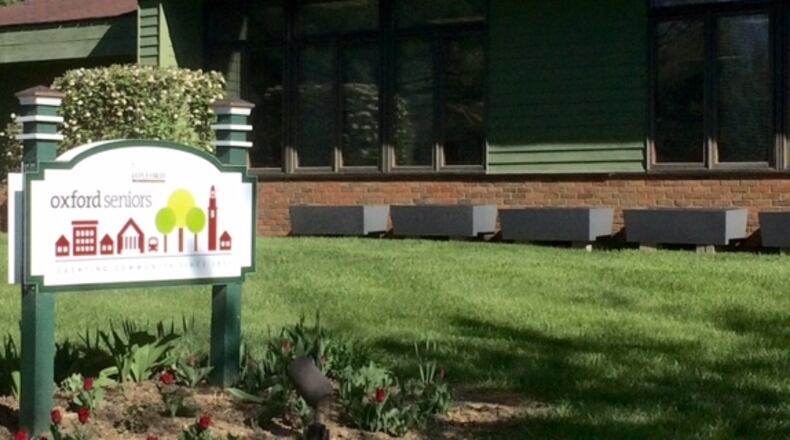In its second year of operations in 2018, AFO partnered with Miami University’s Scripps Gerontology Center to survey the city’s age-friendly community needs. The 2018 results identified housing, transportation and streets, and health and wellness as the most important needs.
In 2022, after a five-year cycle, the two organizations are set to conduct a similar community survey, updating the needs of the area once more.
Jennifer Heston-Mullins, the associate director of research at the Scripps Gerontology Center and a member of the leadership advisory group for AFO, said the 2018 survey helps to guide Oxford on helping aging community members. This year’s survey will help update that plan.
“The results of that helped guide the action plans and the work we did in our first five years,” Heston-Mullins said. “...The results of this survey and the questions that are asked are going to help guide us as we move forward in our work.”
Suzanne Kunkel, former executive director of the Scripps Gerontology Center, said the importance of information from the community helps to know what to plan for.
“Having really good data is extremely helpful,” Kunkel said. “The decision-makers who make up leadership teams have to take the data and use it to make their decisions about what’s feasible, what’s realistic, what’s going to take resources that we don’t have.”
This year’s community survey focuses on housing accessibility and affordability, transportation habits and street maintenance, community and family support, information and internet use, health and wellness among other topics.
In creating this year’s study, Kunkel said it’s a balancing act between asking too much and not getting enough information.
“Designing a survey starts with everything that everyone may possibly want to know, and then getting down to what’s reasonable in terms of the burden on respondents,” Kunkel said. “So we always sort of balance all the things we’d like to know against how painful is this gonna be for someone who’s against filling it out?”
Heston-Mullins said Oxford’s city status as a college town offers a unique perspective on age demographics.
“It’s not just livability for older adults in the community, but thinking about what our community offers people to stay here,” Heston-Mullins said. “A wheelchair user, in terms of accessibility to get in and out of uptown businesses, also works for families that have young children and use strollers.”
In the 2018 community survey, housing responses included what many respondents felt were an “overabundance of student rental housing” and the lack of affordable and accessible housing. Under transportation and streets, one response indicated that drivers felt that, “Students behave as if cars don’t exist.”
“When we think about inclusiveness, it’s how are we making our community livable for anyone who wants to be here and work here,” Heston-Mullins said. “... How are we looking at things through that lens?”
Both researchers also said a big challenge in conducting their research is reaching out to an age group of residents who might not be using the internet regularly.
“There is a large group of our community that just does not plug in onto the internet, and that because of age, because of Wi-Fi access,” Heston-Mullins said. “It’s a huge challenge in our local community, because of the rural area that we’re in.”
Heston-Mullins said that because of research conducted, AFO communicates with some 350 residents who say they don’t use the internet. A paper-copy mailing list filled with information is sent to residents instead of an online edition. Researchers also made sure to make paper copies of the 2023 survey available throughout the city.
“If you need a paper survey, call us, we’ll get it to you,” Heston-Mullins said. “We’ll drop it off, we’ll pick it up, we’ll mail it, we’ll do whatever we need to do it try to get a good sampling of everybody’s thoughts and needs in the community.”
About the Author
